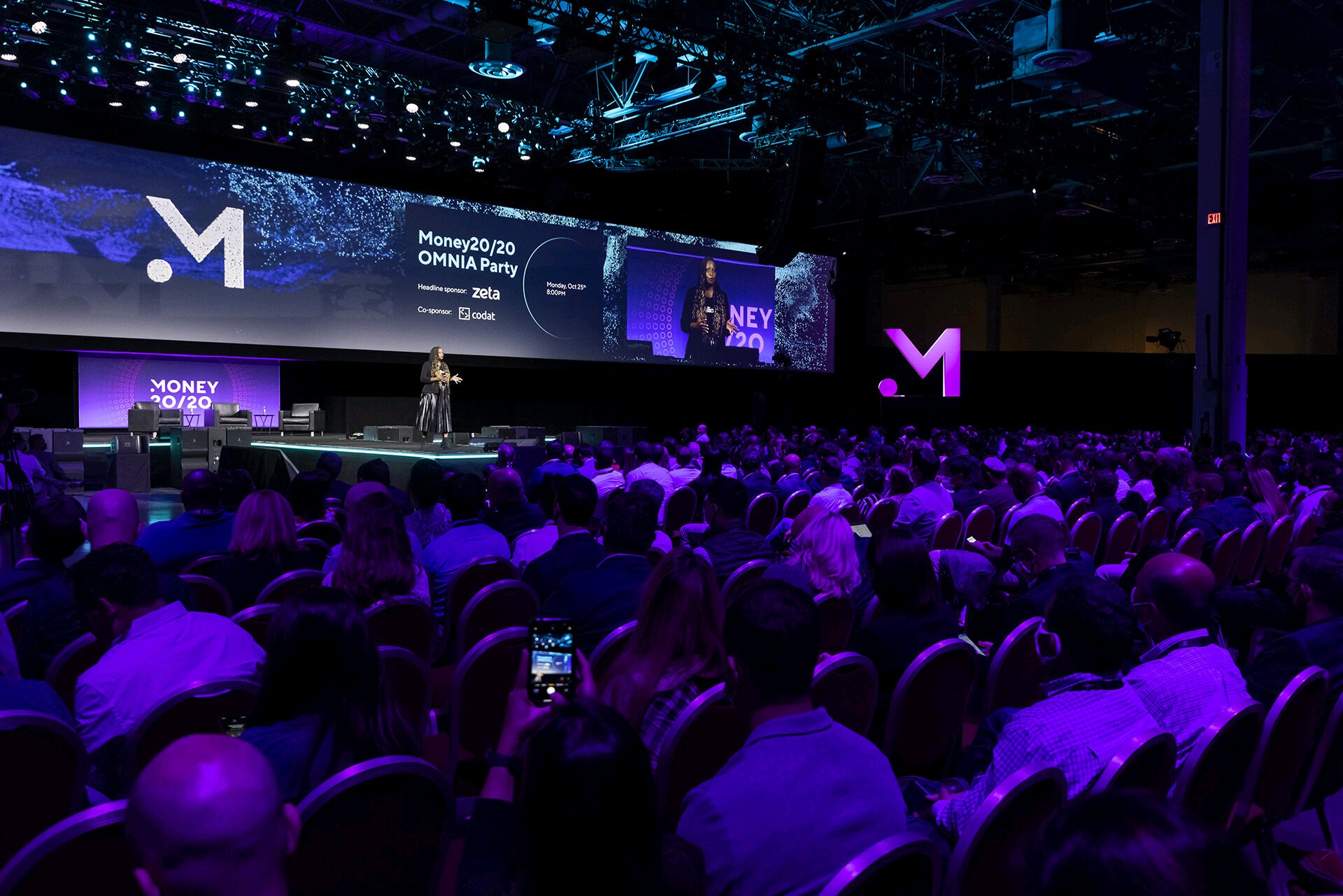
Monique Ruff-Bell is head of conferences at TED, where she manages the organization’s flagship global conferences. Before joining TED earlier this year, Monique led the execution of influential financial B-to-B conferences for Money20/20 USA. The New York-based industry pro chatted with The Vendry about the importance of understanding how events affect a company's revenue, looking to other industries for inspiration, and how LL Cool J kickstarted her career in events.
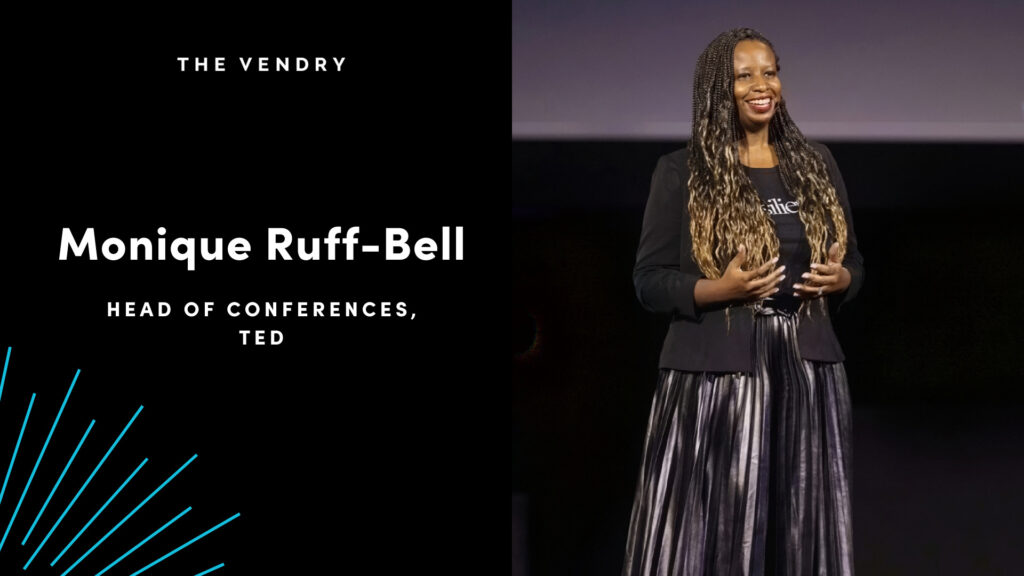
At the end of January, I started a new role as head of conferences for TED. I oversee the execution of TED’s flagship global conferences, as well as support our member events and help to lead the virtual event strategy. My role is to help take TED’s current products and position them for more growth, for more opportunity, as well as enhancing the experiential aspects of their events. I lead a dynamic events team based in New York and Vancouver.
Previously, I was the vice president of events for Money20/20 USA, where I was the senior brand leader and managed the USA program, which is the longest-running Money20/20 event. There are three events, one in Amsterdam and one in Singapore. The one in Vegas is now about 10 years old and it is one of the largest financial services and fintech events in the U.S., where every single person who touches, borrows, and innovates money comes to the show. During a non-COVID year, that's about 10,000-plus attendees, and even with the lingering effects of COVID in 2021, we had over 8,000 attendees in October when we held the event again. We had a very successful year even in the most challenging of times.
I'm excited about Vancouver, which is the TED flagship event, from April 10th through the 14th. I'm managing the run up to that event right now.
Of course, you look at what the trends are with the different publications and what you’ve seen on social media, but I also like to look outside of corporate events or events in general. I like to see what innovative things sports teams are doing, look at entertainment, what's going on with the metaverse and how it can translate for events. I think for you to be ahead of the curve sometimes you have to look outside your home. And so that's where I like to check out what's different, what's new, because we feed off of each other within the events industry, but if you're looking to go beyond that sometimes you have to look beyond the events industry.
Truly understanding the business of events, and thinking beyond just production. I always stress how much of a viable career events can be and that this is truly a business that can help grow a company's revenue line, their brand, and help create future opportunities beyond their current scope. Events is a true business generator and I think more people should talk about it from that angle. I think one of my strongest skill sets is looking at events from that business growth lens. It’s not about just creating a great experience for the attendee coming to your event, but also how you become more impactful to the business and revenue. To be seen beyond a cost center and as a partner that helps further build a positive connection with your brand.
I'm proud that we were able to do the Money20/20 event in October of 2021 when a lot of companies were still shaky about coming back in a big way. We were in Vegas and we created a multi-thousand-person event that included having six stages, 400-plus sponsors, a robust exhibit hall, and many networking events. We created an environment that fostered connections and elevated pipelines while also providing attendees that FUN in fintech. We even had Journey provide a phenomenal concert experience! We called it the fintech reunion, making people feel like they're coming back home, coming back to the community they missed. For us to create that and for people to really not only engage but make comments like ‘this is one of the best shows that they've been to in such a long time’, they were happy to be back, to be back in person makes me super proud that we were able to provide that home, that platform for them to come out of the house, come out behind their screen, and network and be with each other again in such a major way.
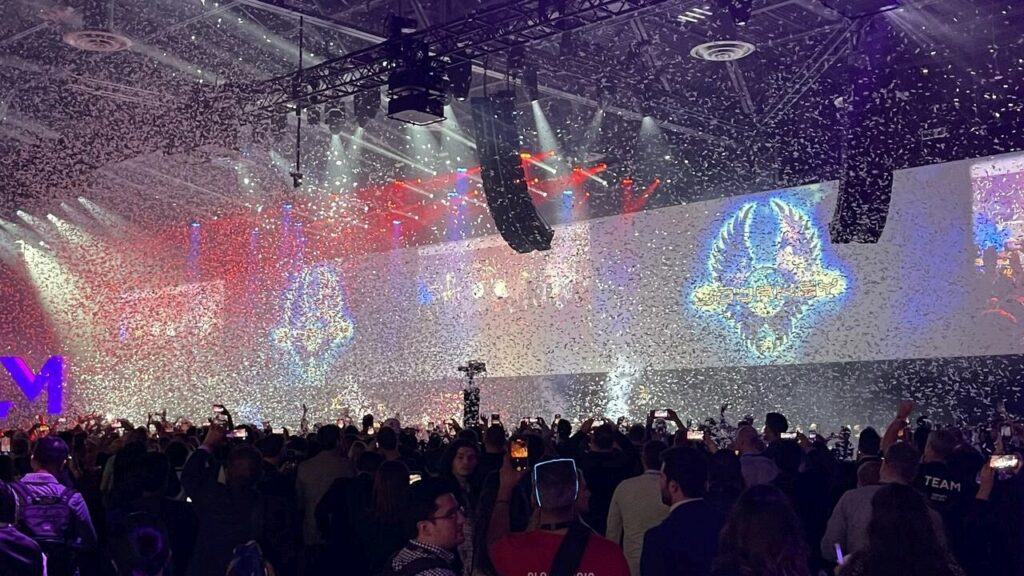
Always looking at your event from the attendee experience. Sometimes we get hung up on what's easier for us as event producers. Why break it and come up with something else if you know this works. But one of the things that I loved about Money20/20, for 2021 we pretty much scrapped the previous layout and show format of our very successful show and gave ourselves permission to reimagine and create something new because we knew we had to invest in it and give a much more unique experience to make people want to come back in person in such a challenging year. To do stuff you’ve never done in one of the most challenging years for our industry was scary, but we did it and it worked in our favor. We went in not focused on whether we would miss revenue numbers, or if attendance was going to be down because we were presenting something new. We wanted to create a sensational experience for whomever was going to show up and we were going to make it worth their while! We were so happy with the results including hitting the attendance numbers that we did, all the positive feedback we received and the phenomenal increase in our NPS score. After that exercise, that Money20/20 team is now fearless! LOL
I think, like everyone else, referrals are a huge opportunity. When you have a nice network of event professionals, they'll tell you who is good and who isn’t good to work with. You listen to that because you trust their opinion. Of course you'll go to the industry shows, but we haven't really been out and about like that in the last few years, well I haven't at least. I also think being on social platforms and seeing how [vendors] are highlighting their work is important. They should lean into really maximizing that opportunity of showcasing their work and targeting the events community via platforms beyond just industry events. I discovered a vendor that I really like based off of what they were posting on LinkedIn. I think it's a mix. I think it's a mix of referral. I think it's a mix of actually seeing who's out there and researching and putting time and effort behind that and then also reading what the publications are saying as well.
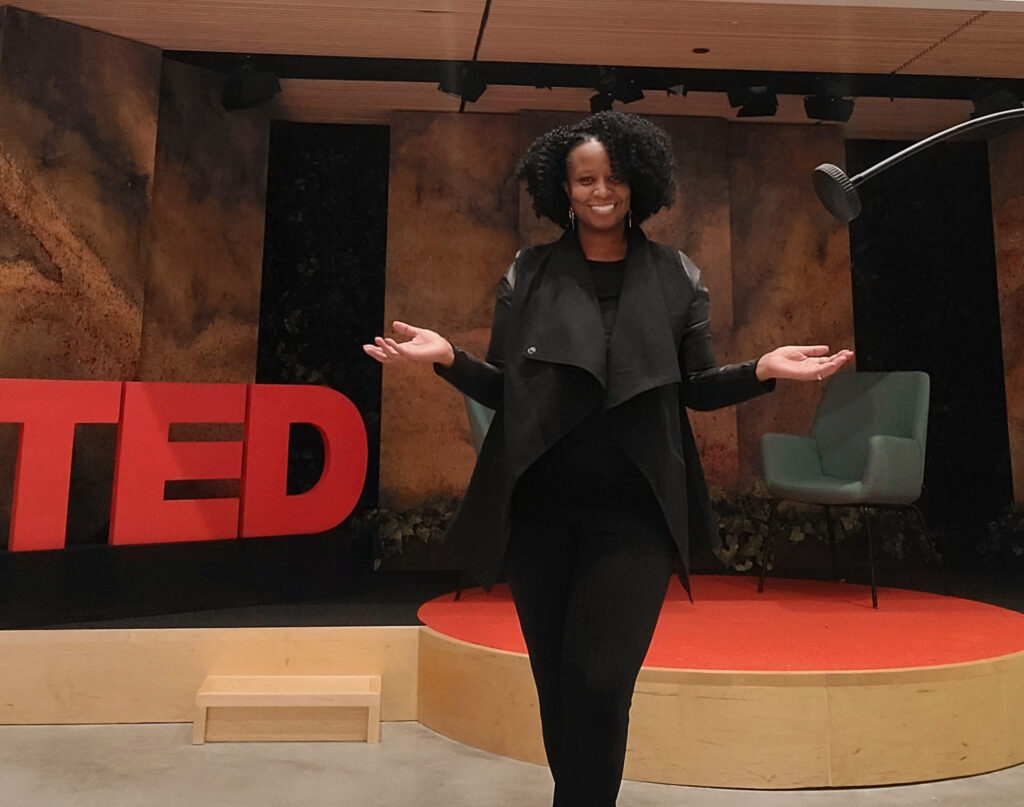
One of the things I’m going through right now is looking at vendors who are solution oriented and who can be true partners. I think one of the things that sometimes frustrates me more often than not is when they extract so much information from you, but they don't bring anything to the table, so you don't know what you don't know and you don't know what you're missing. You really want someone to say, ‘hey, that sounds great. Have you thought about this?’ and really bring some solutions to the table. Not all vendors do that, and it frustrates me to no end because I look at everyone like we're in this together. You want to look good because what you do for us is going to attract more business your way. We want to look good because we want to give a great experience to our attendees, so we're in this together. We should be trying to find the best solutions together. When you're coming to the table and you are tooting your horn and we're not working together on what's the best solution for our program, I think that they're missing a step.
Of course, the baseline is does it hit everything in our RFP that we need? Then, does it feel like a space that can be electrifying? Does it feel like there's a nice flow to it? Like I said, do the people that are working there, are they solution oriented? Are they showcasing things that I would have never seen or expected from them? Can it really provide a fun or unique experience for our attendees?
For TED as well as for Money20/20, it's not just looking at a plain ballroom for us or just a plain restaurant, it's about how we can use these venues to really bring unique experiences to our attendees coming from an experiential mindset. More venues should start showcasing their properties in that way.
Expand your network. Expand your circle.
Apply to Circles - our exclusive, curated networking groups for top event professionals.
LL Cool J. When I was an intern in college, I knew I wanted to do marketing, but I didn't know what I wanted to do in marketing, so I was willing to try anything. I ended up with this small agency that did events, and LL Cool J was one of the celebrities at the first event I got to work on. And when he came off the stage, he was so friendly. He gave me this massive hug, and I said this is the industry for me! If I could get hugs like this and help make people so happy, then this is what I want to do!
My entire experience has been in events and promotions—from working with Ringling Brothers Circus and leading their event promotions to working for an association to working for media companies and publishing companies. And it's always about how do you create such a unique and fun experience for people that it creates great memories or gives them a great opportunity for business enhancement. My experience runs the gamut. I've been a marketer, done sales and sponsorship, operations and logistics, meeting planning and content programming. I’ve tried everything and really found my niche with content programming. From there I became very strategic about moving up in my career to become more of a general leader within events.
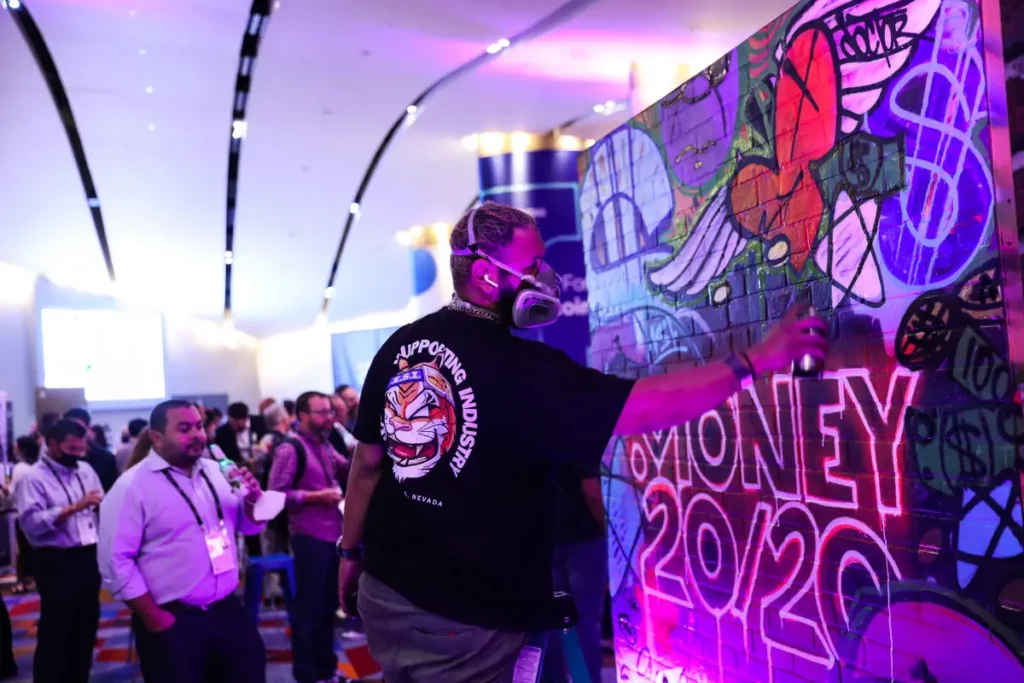
Monday20/20. I think for me I've always looked at going beyond the production of events because I know how important it is from a revenue standpoint to businesses. But I wasn’t always privy to dive into the weeds of certain things, like how do you do impactful projections for your sponsorship revenue and how does that flow in, not only quarterly, but on a weekly basis? How do you make sure that you are creating these really cool marketing programs so you can help make more of a brand impact and not just sell tickets? How are you looking at the attendee journey, from arrival to exploration to engagement to exit and extending the experience?
And so to learn how to do that and to understand how to pull a global team together, as my team wasn't just based in the U.S. but in the U.K. as well, to deliver strong market share, millions in revenue, and a top notch experience, was priceless. I always say Money20/20 was my Harvard. It really elevated my skills in an unexpected way to not just talk about growth, but create the proper levers to achieve it. I feel there may not have been a TED for me without my experience at Money20/20.
This is such an amazing industry. Where can you go where you can bring joy or opportunity to people multiple times a year or even once a year in a big way? And you get to see the end result of that pretty much immediately when the event is complete. This is such a viable career, as there is opportunity to lead and to learn so many different aspects of events. There is not only the business management and the P&L management side, but there’s also production where you get to build really cool things, or the sales side where you can help build pipelines for clients and contribute to their business. And you may think just doing logistics is all about sourcing and getting things ordered or delivered, but you're actually helping our vendor partners survive and thrive while delivering something unique to your attendees that make their experience even better. So I think when you look at it more holistically and not just from your silo, you should feel proud about what you get to do every day. You're a changemaker. So to me, it's a great industry, and I've never left it for a reason and I hope more people join it.
The Coliseum in Rome. The reason why I say that is because I have an Oculus and I was just traveling into it virtually, and I was like, this would be great for an event.
What was a game changer for me was attending the Cannes Lions event in 2012. When I went there, I said, I want to run events like this! Ascential, who owns Money20/20, owns Cannes Lions, and so, in a way, Money20/20 became my own version of Cannes Lions as well as I got to work on a few projects for that sister brand while at Money20/20. I didn't start with Ascential until 2018, but I had put that out in the universe in 2012! So I pretty much got what I wanted.
If I wanted to be a good leader, I needed to concentrate on these three things: understanding the psychology of people to drive the right behaviors and impactful connections, understanding how to create product to help drive the bottomline or brand, and understanding finances, as being revenue minded is a strong influencer. I've been able to move up into these leadership positions because I have always kept those three things as my north star.